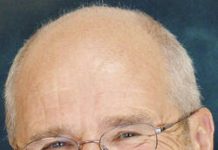By Andrea Neal
The Internet Revolution has changed the way I teach my eighth-grade history students. In addition to learning about presidents and politics, students today need intensive instruction in avoiding plagiarism, verifying sources and spotting fake news.
Since I left journalism and became a teacher 14 years ago, I have constantly battled the “copy and paste” mentality that is so prevalent in scholarly circles — and has cost both academicians and journalists their jobs and reputations.
For example, I require students to hand write information on index cards when doing research papers and urge them to paraphrase the material immediately to reduce the risk they will plagiarize later in the writing process. When designing writing prompts, I scour the Internet to make sure my exact idea has not previously been assigned. This reduces the chance students will find comparable papers online to buy or borrow.
The epidemic of false news requires yet another layer of instruction, which goes beyond the admonition to “avoid quoting Wikipedia.” I also teach students how to search for reliable databases, verify online information and confirm it with a second source. In essence, consumers of information have become journalists themselves.
This is a role all social studies teachers should assume, if they haven’t already. The task of researching and writing a research paper is essentially the same as that of reporting a news story. Once the topic is determined, students should identify multiple sources, both primary and secondary. They should look for different points of view and determine credibility of each.
Consider this assignment: “Write a five-paragraph essay on how Lincoln’s Indiana years affected his presidency.” In introducing the task to students, I explain that the best and most reliable source is Lincoln himself, though regrettably the 16th president’s reflections on Indiana were few and far between. I insist they identify a book from the library on the topic of Lincoln in Indiana (hoping they will uncover William Bartelt’s “There I Grew Up”). I require them to visit the web sites sponsored by the Indiana Historical Society and the Lincoln Boyhood National Memorial, which can be counted on to contain the most accurate Lincoln scholarship.
Inevitably children will get duped by internet sites, as will most online consumers. I once described to my students a photo I had seen of President Benjamin Harrison wearing one of his pet opossums on his lapel, only to learn later that it was photo-shopped.
On the Lincoln assignment, more than one student included in his paper this supposedly famous presidential pronouncement: “In the end, it’s not the years in your life that count. It’s the life in your years.” Although this quotation appears at the top of the list of Lincoln quotes on the website brainyquote.com, there is no historical evidence he ever said it. Furthermore, it sounds nothing like Lincoln, a conclusion that may be beyond the academic insight of the typical eighth-grader.
These are the fundamentals of scholarship, and all Indiana high school students should be trained in them.
A study released in November by Stanford University’s History Education Group affirms the value of this kind of instruction. Researchers spent 18 months testing young people’s ability to judge online information at middle-school through college levels.
Their conclusion: “At every level, we were taken aback by students’ lack of preparation: middle school students unable to tell the difference between an advertisement and a news story; high school students taking at face value a cooked-up chart from the Minnesota Gun Owners Political Action Committee; college students credulously accepting a .org top-level domain name as if it were a Good Housekeeping seal.”
The History Education Group offers a program, “Reading Like a Historian,” that immerses students in primary sources and teaches specific strategies for evaluating a source’s accuracy and biases. Closer to home, students can visit the Indiana Historical Society for instruction in historic research methods.
Since last year, my school has offered a one-semester, once-a-week class, “Digital Citizenship,” to help eighth-graders use social media and the internet in responsible and positive ways. They learn the perils of social networking and the potential impact of their digital footprint on their reputations and careers.
Because of the fake-news phenomenon, they learn to apply their historic research skills to their online behavior. For example: Don’t re-tweet information you suspect is false, especially information that appears slanderous or defamatory.
Whether or not we teach these skills, there will still be students who cheat, journalists who plagiarize and online users whose primary mission is to spread lies and rumors. We can’t teach honesty, but we owe it to the next generation to give them the tools and skills for verifying the accuracy of the information they read and distribute to others. It’s good scholarship, good journalism and common sense.
Andrea Neal is an adjunct scholar with the Indiana Policy Review. Contact her at [email protected].




